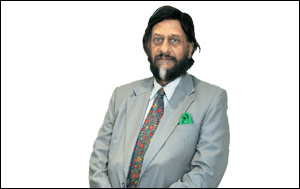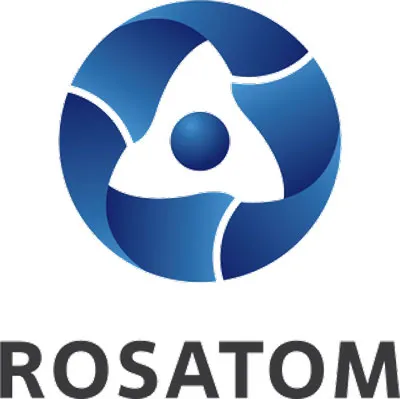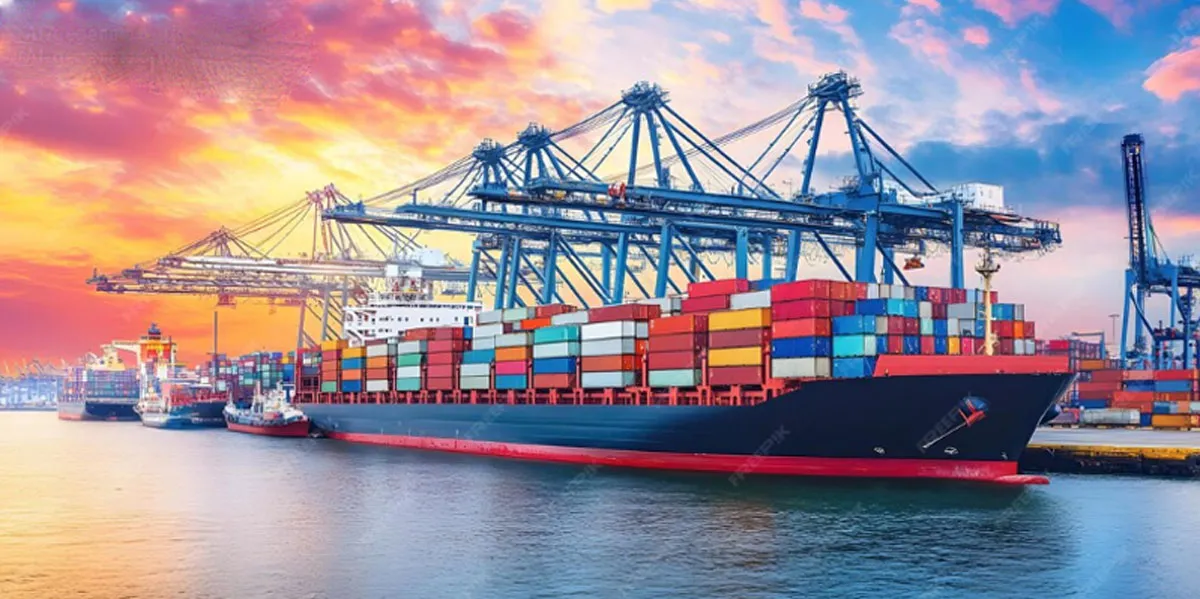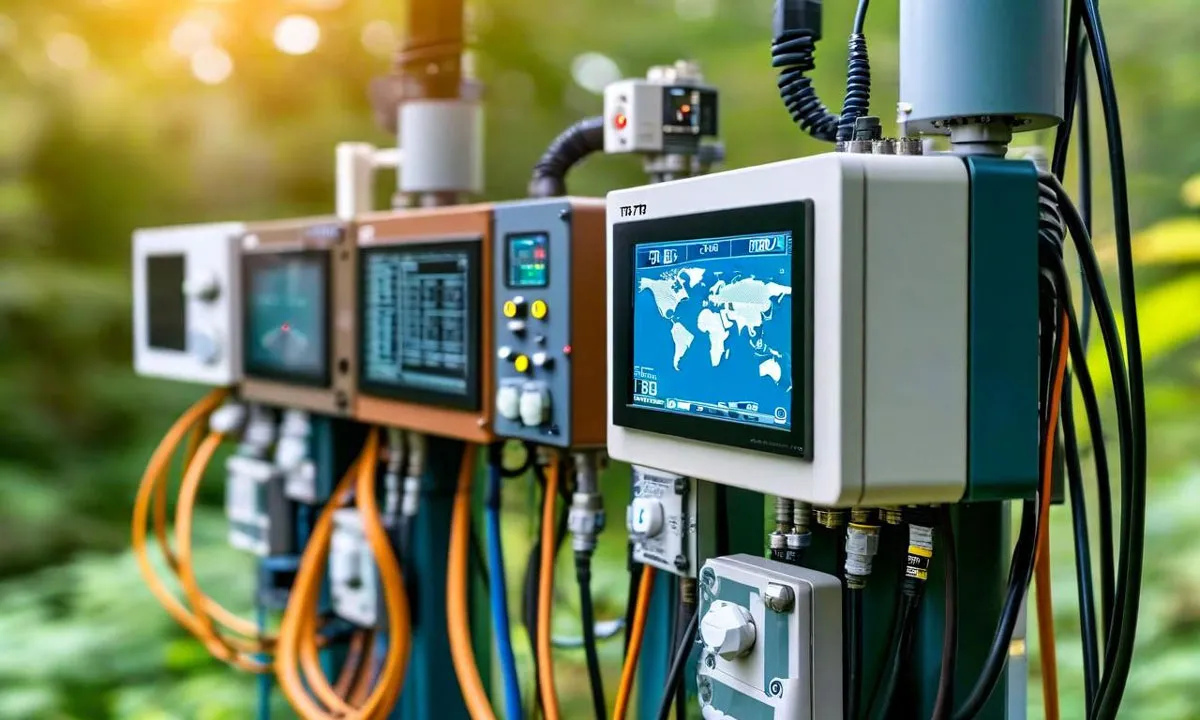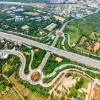Dr RK Pachauri, Director-General, The Energy and Resources Institute (TERI)
Eco-warriors know no rest. He is off on yet another mission to combat malefic influences threatening fragile earth. Barely months after catastrophe rained on Uttarakhand, Dr RK Pachauri, Director-General of The Energy and Resources Institute (TERI), New Delhi, has been invited by the minders of the Himalayan state to offer his inputs that will be crucial to the rebuilding process. SHRIKANT RAO caught up with the environmental scientist on the sidelines of ASAPP Media's CWAB Awards in Mumbai. Excerpts from the interview
What are the lessons the Indian construction industry needs to draw from the Uttarakhand disaster and how do we mitigate such tragedies?
The first lesson that the construction industry should learn from this episode is that whatever you construct must ensure that life and property are not placed at risk. Some of the structures that came up in the region were very clearly in the danger zone. They were located in a zone where heavy rainfall would have caused maximum damage to life and property. The other lesson is that you have to be sensitive to the ecology of the region. I mean, buildings have to be constructed in a way that respects the ecological condition of that particular area. Wherever a building is constructed, you have to make sure it is strong enough to withstand normal weather fluctuations and patterns. Also, I think there is a huge task of training and learning that will be very important for the construction industry. I believe governments have to lay down some benchmarks, introduce codes and requirements that should be part of building regulations.
The chief minister of Uttarakhand has approached you for counsel. What would be your suggestions to him in rebuilding the affected areas of the state?
I would say, rebuild it in the way it was built earlier. Let us think about it very carefully and come up with a set of regulations that will protect the ecology and ensure minimal risk to human life and property.
What specifically is the nature of the support that your organisation is offering the Uttarakhand government?
That is yet to evolve. I am a member of the committee formed for the purpose and we are hopefully going to get involved in devising a measure of GDP that involves issues like the health of the forest, the kind of siltation taking place, and looking at all aspects of protection of natural resources of the region. Like I said, it is a very fragile region and we have to be very particular about ensuring that activities are carried out in such a way that we do not damage its ecology.
Would you characterise the development model of the Himalayan region as flawed? I would say it is totally out of tune with the ecology of the region and the Himalayan range is a very fragile range. You cannot have buildings; you cannot have the kind of infrastructure and facilities being created over there. I believe road building over there is an activity that has major environmental implications, particularly in the Garhwal regions. So you need to look at how you might regulate traffic, how you might think of alternative ways of transportation, and these are things that require very deep study. It is not possible to come up with a policy that is purely ad hoc, without any substantial basis in terms of understanding the ecological impact on the environment and, most important, how it would risk human beings and property.
There are dams in the Himalayan region that present a potential threat. Now even the Chinese are altering the course of rivers. What is your assessment on this?
I do not have any knowledge of what the Chinese are doing. One reads about that in the media but I have no direct knowledge. But as far as dams are concerned, we certainly need to carry out a very detailed analysis of the environmental and social impact and I am not too sure whether we do that thoroughly enough. If we were to do that, there are some dams that would be acceptable and some that would not. Is there a threat assessment? I think we can only say that on the basis of a detailed study that needs to be done. It is the process, which I believe is far more important than the final decision you take. You've got to follow due process. There has to be due diligence.
It looks like on the Sethusamudram project, the government is going to follow a course at variance to the recommendations of your committee that it is unviable.
That is for you to ask the government. We have submitted our report that contains ecological and economic reasons and it is for the government to either accept or reject our recommendations. We were asked to carry out an assessment of one single alignment. We did this very diligently with a lot of careful data collection all year around looking at the changes in tides, wind patterns, the impact on different locations as a result of silting and desilting, all of that, and found it unacceptable.
There are those who draw parallels with the Panama Canal to justify Sethusamudram's existence?
I do not think we can make comparisons of that nature; both are geographically thousands of miles apart and have different conditions. I mean the traffic is different; the location is different.
Are you happy with what is happening here in India both at the government and private enterprise level?
We have to define the path of development we are going to take. Are we going to replicate what is done in the countries of the West and the developed world? Or should we come up with a path of development that is distinctly different, totally in keeping with the traditions of the country? I think that is a very basic issue we have to address. If you are not going to take into account the depletion of natural capital in the process of generating financial capital, you are only taking a part of the whole; you are not looking at the entire picture. And that is very important. We have to come up with a pattern of development that suits our country. I do not think we have done that kind of integration.
New Delhi has come up with an eight-point agenda to address the environment problem. How effective is that?
We have a national action plan on climate change that I believe is a very good action plan. Whether it is being implemented effectively I do not know, but the plan itself is pretty good. This was done with a lot of thought and care, with a lot of study where state governments were also allowed to comment and come up with suggestions and ideas. So we have a fairly robust plan. But whether it is being implemented is a different issue.
How much empathy have you seen from industry towards environmental concerns?
We have some very good examples of industry being very responsible and you also have some that are not all that good. So it is a mixed picture. There are several companies that are very conscious of their responsibility to protect the environment. We have companies like Hindustan Unilever who have done some very useful projects. There are others too like the Power Finance Corporation, companies that are very sensitive towards corporate social responsibility.
What is the biggest challenge to make all these initiatives implementable?
Knowledge and awareness on the part of the public. In my view, in a democracy, which we are fortunate to have in this country, the public has to demand priorities that will really serve this generation and those yet to come.
One criticism that is often offered is that in industry, while there is emphasis on terms like carbon trading or carbon footprint, the actual environment has been ignored.
That is all a means to an end. The end is protection of the environment. Unless you have an end that is clear, unless you desire some of the results, you know the means will only have limited relevance.
Do you think we lag behind in technology when it comes to addressing all these problems?
Not at all; technology is available. It really is a question of priorities and mindsets. If we are clear about our priority, the means and technologies are all available.
What are the must-do steps to get the country on the climate control course?
I would start with buildings. We have to construct buildings that are totally sustainable and efficient in the use of energy, water and natural resources of any type. Given the fact that our thinking and lives are conditioned by the buildings we live in, we have to be extremely particular about the construction industry in this country. We have a lot to work to do in this country on a lot of fronts to bring out positive change. You cannot single out one against the other.
The urgency to get the fast-deteriorating global climate under control cannot be overstated. How effective is your organisation as a pressure group?
We have carried out a detailed assessment of the impacts of climate change and it is for decision makers and society to decide what they want to do. We are a scientific body; we provide an assessment of all aspects of climate change. But we are not a decision-making body, nor are we a policy prescriptive body. We do not prescribe policy. What we do is policy-relevant though.
The message of eco-conservation is constantly being drummed by environmentalists like you but it is a fact that most politicians and businesses don't seem to take it all that seriously. What hope then?
In a democracy, the best way to get anything done is to ensure that awareness is spread among the people. If people are aware and aggressively demand something, politicians and other stakeholders will certainly respond. We need to create a climate of awareness on these issues. From the public point of view, we have to be very conscious about the fact that India has a rich heritage when it comes to nature. We cannot damage or deplete it because it is not fair to this generation or the generations to follow. Such consciousness will bring about commitment.
